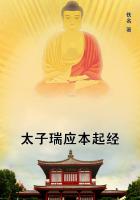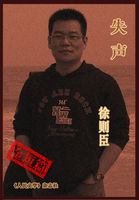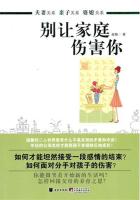In fact, it must have been obtained by labour before there was any possibility of its being robbed.
Private property by no means makes its appearance in history as the result of robbery or force. On the contrary. It already existed, though limited to certain objects, in the ancient primitive communities of all civilised peoples. It developed into the form of commodities within these communities, at first through barter with foreigners. The more the products of the community assumed the commodity form, that is, the less they were produced for their producers' own use and the more for the purpose of exchange, and the more the original spontaneously evolved division of labour was superseded by exchange also within the community, the more did inequality develop in the property owned by the individual members of the community, the more deeply was the ancient common ownership of the land undermined, and the more rapidly did the commune develop towards its dissolution and transformation into a village of smallholding peasants. For thousands of years Oriental despotism and the changing rule of conquering nomad peoples were unable to injure these old communities; the gradual destruction of their primitive home industry by the competition of products of large-scale industry brought these communities nearer and nearer to dissolution. Force was as little involved in this process as in the dividing up, still taking place now, of the land held in common by the village communities [ Gegoferschaften ]
on the Mosel and in the Hochwald; the peasants simply find it to their advantage that the private ownership of land should take the place of common ownership. Even the formation of a primitive aristocracy, as in the case of the Celts, the Germans and the Indian Punjab, took place on the basis of common ownership of the land, and at first was not based in any way on force, but on voluntariness and custom. Wherever private property evolved it was the result of altered relations of production and exchange, in the interest of increased production and in furtherance of intercourse -- hence as a result of economic causes. Force plays no part in this at all. Indeed, it is clear that the institution of private property must already be in existence for a robber to be able to appropriate another person's property, and that therefore force may be able to change the possession of, but cannot create, private property as such.
Nor can we use either force or property founded on force in explanation of the "subjugation of man to make him do servile work" in its most modern form -- wage-labour. We have already mentioned the role played in the dissolution of the ancient communities, that is, in the direct or indirect general spread of private property, by the transformation of the products of labour into commodities, their production not for consumption by those who produced them, but for exchange. Now in Capital , Marx proved with absolute clarity -- and Herr Dühring carefully avoids even the slightest reference to this -- that at a certain stage of development, the production of commodities becomes transformed into capitalist production, and that at this stage "the laws of appropriation or of private property, laws that are based on the production and circulation of commodities, become by their own inner and inexorable dialectic changed into their opposite. The exchange of equivalents, the original operation with which we started, has now become turned round in such a way that there is only an apparent exchange. This is owing to the fact, first, that the capital which is exchanged for labour-power is itself but a portion of the product of others' labour appropriated without an equivalent; and, secondly, that this capital must not only be replaced by its producer, but replaced together with an added surplus... At first property seemed to us to be based on a man's own labour... Now, however"(at the end of Marx's analysis) "property turns out to be the right, on the part of the capitalist, to appropriate the unpaid labour of others, and to be the impossibility, on the part of the labourer, of appropriating his own product. The separation of property from labour has become the necessary consequence of a law that apparently originated in their identity."In other words, even if we exclude all possibility of robbery, force and fraud, even if we assume that all private property was originally based on the owner's own labour, and that throughout the whole subsequent process there was only exchange of equal values for equal values, the progressive development of production and exchange nevertheless brings us of necessity to the present capitalist mode of production, to the monopolisation of the means of production and the means of subsistence in the hands of the one, numerically small, class, to the degradation into propertyless proletarians of the other class, constituting the immense majority, to the periodic alternation of speculative production booms and commercial crises and to the whole of the present anarchy of production. The whole process can be explained by purely economic causes; at no point whatever are robbery, force, the state or political interference of any kind necessary. "Property founded on force" {D. C. 4} proves here also to be nothing but the phrase of a braggart intended to cover up his lack of understanding of the real course of things.















